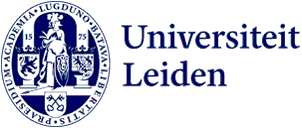
Active Acquaintance for new Archaeology students: ‘Wellbeing, study succes, and having fun is all connected’
Every year the newly arriving Archaeology students are invited to join an introduction day during which they get to know the Faculty and each other. This year, however, for the first time, the students were invited to join in on introductory activities of a less static and more fun nature, organised by Study Adviser Cleody van der Eijk. ‘It helps people to loosen up and get to know each other.’
A stronger community
The goal of Active Acquaintance is to build a stronger community among the newly arrived students. The introduction activities were aimed at letting the students get to know each other. ‘If you organise an event in which students connect and help each other,’ Van der Eijk explains, ‘it will come more naturally to them when they notice someone in the group is struggling in daily life. We hope this will lead to a more safe environment.’
If a larger group of people is left to its own devices, this usually leads to a splintering into smaller groups. ‘Our aim was to let the new students get to know a lot of their classmates. So that at least they know each other's names, and some personal details like a fondness for cats or their favorite color.’ The aim is to lower the threshold for students to give and receive feedback, and to gain a sense of responsibility within the group to keep the environment healthy and positive.

Fun assignments
The way to do this is by giving fun assignments. ‘We let them undertake short activities in which they needed to talk to each other in order to complete them. Like line up and stand in order of house number, or distance of the furthest country that you visited, for example. Completing the activity is the main goal, but they get to know each other in the meantime.’ The activities were led by the student mentors, for whom it is also vital to have a good bond with the new students.
But how would that help individual students in the course of their studies? ‘It helps tremendously if you feel seen and safe in the group,’ Van der Eijk states. ‘A safe environment is a better place for learning. Moreover, the threshold for asking help is lowered, so people ask for help in time, instead of too late or not at all. Wellbeing, study success, and having fun is all connected.’
Experience
And how did the students themselves experience this active acquaintance? Van der Eijk smiles: ‘The feedback I got? Laughing students, who were still in the park at 16.30 hours after the activities had finished, talking with each other in one large group. A lot of people chose to be in the group. Our student mentors really did a great job engaging them in the activities.’

Safe study environment
The Faculty of Archaeology is heavily invested in creating a safe study environment. ‘For this reason, we also organise a so-called Bystander and Consent training this year. In this training our students will be provided with tools to deal with experiencing tricky social situations, like seeing someone being addressed inappropriately.’ The main goal is a Faculty where everyone can be themselves and feel safe accordingly.
